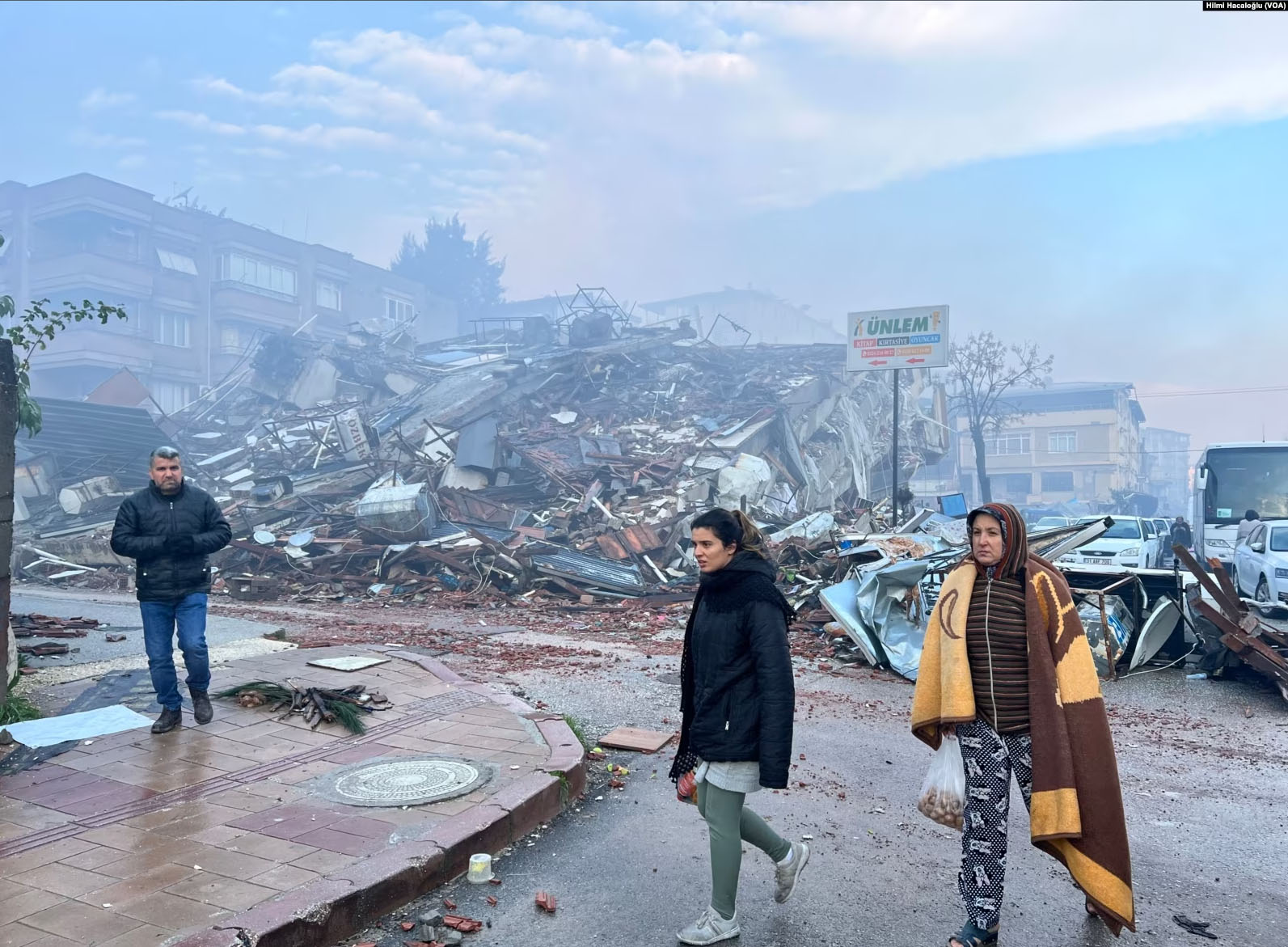When Turkey’s Kahramanmaraş province was hit by two powerful earthquakes on 6 February 2023, the government responded by attacking the country’s already beleaguered press and journalists. It is time now to take stock, lay bare abuses and ask the right questions.
Over 55,000 people died in the earthquakes in Syria and Turkey and thousands are still missing. In Turkey alone, there was a devastating effect on at least 10 provinces, wiping several cities off the map.
The harrowing aftermath of the earthquake was compounded by the government’s inadequacy in providing disaster relief. Beyond that came a series of measures to stop the media from reporting on the earthquake, ranging from detentions and intimidation to physical attacks.
In the time between the earthquakes hitting on 6 February and the first week of March, 10 journalists were taken into custody, with two of them arrested for their reports from the disaster ground. In addition to that, 26 journalists were targets of physical attacks or attempted attacks in the earthquake region, initiated by security forces and unidentified groups. A state agency gave three independent news stations astronomical fines, and journalists working in pro-government media have targeted at least three journalists for their work in the disaster region.
On 9 February, the day after the government declared a state of emergency in the affected regions, it blocked Twitter for up to 12 hours. This move didn’t only hinder the coordination of relief efforts, but also led to hundreds, maybe even thousands of lives being lost, as many earthquake victims were tweeting their status and asking for help from under the rubble in those most crucial hours.
Even for a government known for its repressive policies, why did shutting down social media and stopping the press take precedence over rescue efforts?
In Turkey, where the vast majority of media is in government hands and internet access restrictions are common, the earthquake laid bare the disastrous consequences of two decades of the Justice and Development Party (AKP).
Following the earthquakes, thousands of buildings collapsed, with yet thousands more severely damaged — believed by many construction experts to be a result of a series of amnesties which legalised unregistered developments, and the support for government-friendly construction companies.
The media exposed the links between the government and construction companies, which could easily obtain licenses for unfit buildings. This strictly contradicts the government’s narrative of the earthquake being the “disaster of the century”.
News reports on buildings — including that of the Kahramanmaraş Chamber of Civil Engineers, which survived the two quakes without so much as the glass of a window shattering — stood testimony to the fact that although the earthquakes were natural, the disaster was man-made.
Covering up these incidents by stopping journalism took precedence over saving lives.
The first earthquake-related detention occurred as early as 7 February, when Evrensel Daily’s Adana correspondent Volkan Pekal was taken into custody by police officers while filming at Adana City Hospital on charges of recording “without permission”.
By the third day after the earthquake, four journalists had been detained while filming or interviewing in the affected cities. Many journalists now face investigations under Turkey’s newest “fake news” law which makes “spreading misleading news publicly” a crime punishable by up to three years in prison.
On 27 February, local journalists and brothers Ali İmat and İbrahim İmat from the earthquake-stricken town of Osmaniye were arrested on the same charge. They exposed how hundreds of tents in Osmaniye were kept in storage houses, instead of being distributed to survivors.
There were also threats. President Recep Tayyip Erdogan told journalists the government was monitoring those who were critical of Turkey’s handling of the disaster. Turkey’s state broadcast monitoring agency, the Radio and Television Supreme Council (RTÜK), issued Halk TV, Tele 1 TV and Fox TV with five programme suspensions and administrative fines for their news reports on the disaster.
More than one month after the earthquake, many cities still don’t have running water; debris and rubble haven’t been cleared up in many places. Survivors still don’t have access to tents, let alone housing. With general elections due in two months, instead of addressing the needs of survivors and putting in place procedures to ensure that the next earthquake will not result in a similar outcome, the government of Turkey still chooses to demonise and punish independent journalism.





